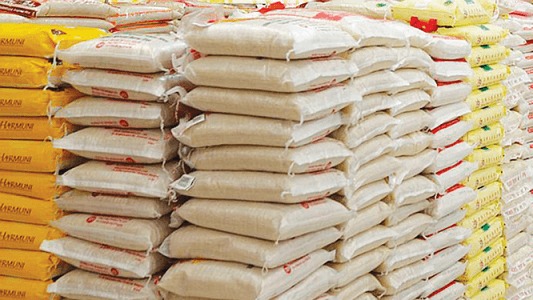Nigerian families are grappling with unprecedented hardships as they resort to unconventional cost-cutting measures to cope with the recent surge in the prices of goods and services. Many have lamented that their incomes are no longer sufficient to meet daily needs, with staple prices nearly tripling. Notably, rice, a commonly consumed staple, has skyrocketed to N77,000 per bag.
The National Bureau of Statistics reported in December that Nigeria’s inflation rate reached a 27-year high, with headline inflation at 28.9 percent. This marked a 0.72 percent increase from the previous month. Contributing factors include government policies such as the removal of petrol subsidies and the depreciation of the naira in the foreign exchange market.
Foodstuff sellers in major cities disclosed that the cost of a bag of rice has surged by almost 200 percent. Long-grain rice, which was priced between N45,000 and N50,000 in November, now exceeds N70,000. This substantial increase in commodity prices has sparked protests across the country, from Kano to Niger, Rivers to Osun.
Residents in Niger State have taken to the streets, registering their discontent over the soaring cost of living. Organized labor has threatened industrial action to express dissatisfaction with the economic hardship. Despite the government’s distribution of grains and other items to mitigate the crisis, citizens continue to grapple with escalating commodity prices.
In Lagos, residents expressed their distress over the relentless rise in food prices, describing it as unbearable. Some called on the government to intervene urgently. A mother of two lamented the challenging situation, likening it to a state of war. Online businesses have suffered, and the costs of basic items such as noodles and rice have surged significantly.
Another resident, a father of four, highlighted his struggle to afford proper meals for his family and appealed for government assistance. The sentiments were echoed by a housewife who emphasized the drastic increases in the prices of beans, groundnut oil, and rice, urging the government to intervene.
Further investigations revealed additional price hikes, such as Semovita rising from N800 to N1,200 per kilogram in four months and beans increasing from around N1,500 to N4,200 per tin. The pervasive inflationary pressures have left many Nigerians grappling with the harsh economic realities, prompting widespread calls for urgent intervention.
























